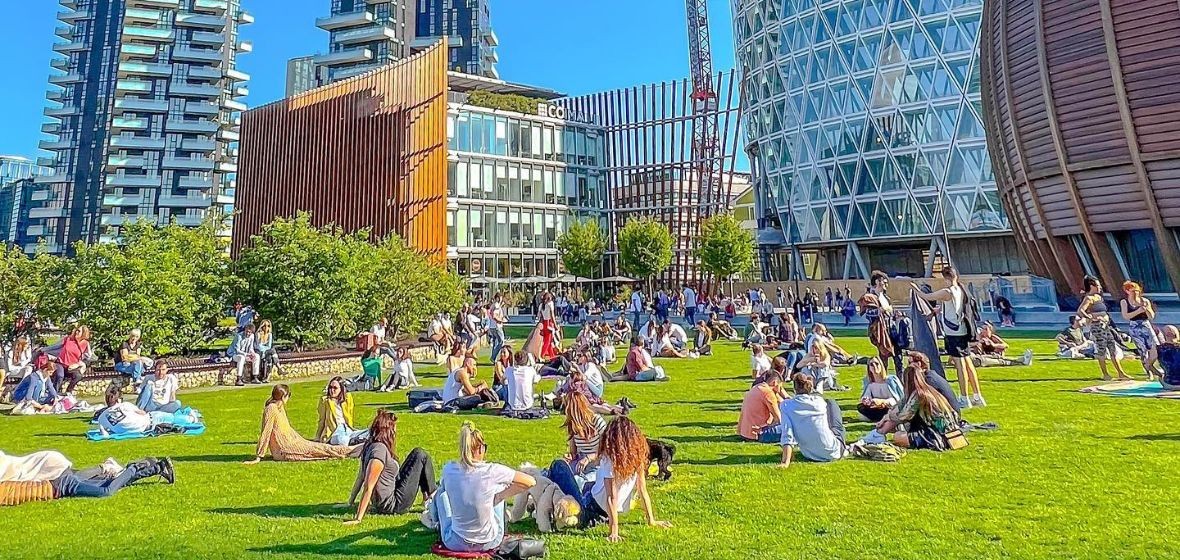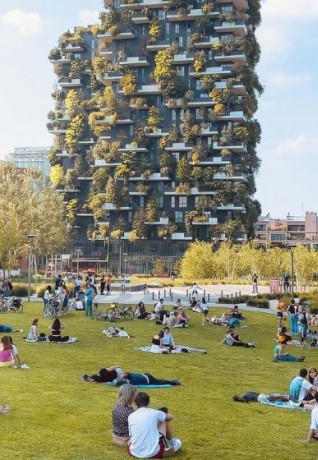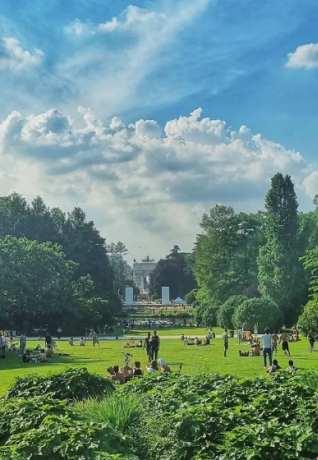A more sustainable future
Discover how Milano is striving hard to become a green city

Milano is striving hard to become a green city and shed its old grey image. The Mayor of Milano chairs the network of global cities embracing the UN sustainability goals and the City has enacted trailblazing policies in bike sharing and electrical micro-mobility, traffic pricing and tactical urbanism.
Milano excels in public transportation, thanks to its five subway lines (now you can go by tube to the Linate airport!) and the extensive network of characteristic trams.
All the new projects that are currently changing the city (e.g. MIND and Parco Romana) feature vast green areas and existing parks like Parco Sempione and Parco Nord are filled with revelers and joggers.
Most importantly, an environment-friendly mentality has developed among the Milanese, who increasingly walk or cycle to work and demand limited traffic zones and pedestrianized areas.
The Milanese like to consume organic food and combat food waste through civic initiatives, while a taste for so-called zero-kilometer products is developing, in tandem with veganism and vegetarianism.
Milano has put sustainability at the center of its city identity and has adopted an ambitious climate and air quality plan to decarbonize the its energy provision and economic activities, while dissuading the use of private automobiles: in no other city in Italy the ecological transition is taken so seriously.
Milano is pursuing sustainability through a trifecta of green mobility, anti-smog and climate policy, and green urbanism:
-
Milano aims to become carbon-neutral by 2050, and will cut CO2 emissions by 45% within 2030.
-
Among best-ranked cities in the world for bike-sharing, car-sharing, and e-sharing services.
-
Construction of 70 kilometers of bike lanes and bicycle stations, and implementation of a 30 km/h zone all over the city area by January 2024.
-
the ForestaMi initiative bringing private and public actors together in reforesting Milano with 3 million trees by 2030 (nearly 500,000 already planted).
-
The 15-Minute City as organizing principle in sustainable and inclusive urban development.
-
A network of underground metro lines and suburban trains enabling fast mobility across the metro area and the region.
-
Electrical trams and trolleybuses, and a fleet of buses in the process of being electrified.
-
Centrale and Garibaldi Stations served by high-speed trains to Paris and Rome, while Cadorna FN is the main terminus of the Malpensa Express.

 Log in
Log in

